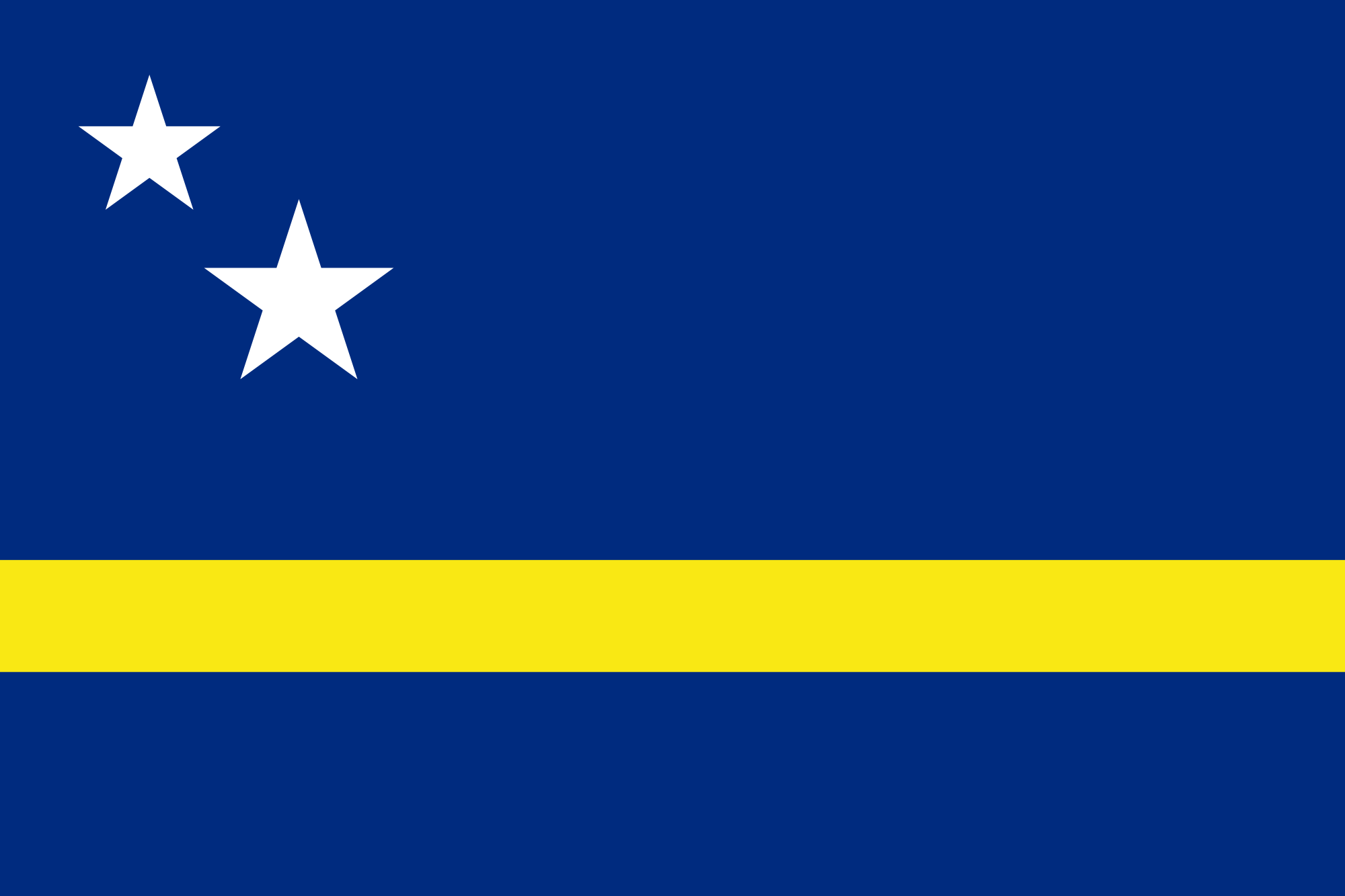Divorce (Aruba)
If you are married and no longer want to stay with your partner, you can get a divorce. There are 3 options:
divorce: your marriage will be dissolved;
legal separation: you remain married but live (usually) separately;
dissolution of the marriage after a legal separation; after a certain period you still choose to dissolve the marriage.
Download: checklist
These procedures are largely the same and fall under civil law. You are not obliged to engage a lawyer. The divorce procedure takes at least 1 week to more than 1 year, depending on whether you can quickly agree on the divorce.
Procedure
The divorce proceedings consist of the following steps:
1. Prepare court case
Lawyer
You are not required to engage a lawyer in divorce proceedings. If you and your partner agree on the divorce and all agreements in an agreement or parenting plan, you can engage one lawyer, but you are not obliged to do so.
Agreement
Together with your partner (and lawyer if applicable), you and your partner will prepare a divorce agreement (divorce agreement) in which you record all agreements about the divorce. These are, for example, agreements about money, things, your house, cars, debts, pension schemes, partner alimony, child support, access arrangements. A divorce agreement is not mandatory.
Parenting plan
If you have minor children, you can prepare a parenting plan. In the plan, you and your partner record how you will both take care of the upbringing and care of the children and the costs thereof (child support) after the divorce. A parenting plan is not mandatory.
2. Submit a request for divorce
You and your partner agree
You and your partner or lawyer must submit the "joint divorce petition" to the Court of First Instance of Aruba. See link divorce checklist above.
You and your partner disagree
Does your partner disagree with the divorce or its financial or practical consequences? Then you can still apply for a divorce by submitting a unilateral divorce petition to the Court of First Instance of Aruba. You are not required to have a lawyer. You can also submit a petition yourself. Your partner will then receive a copy of the unilateral petition and can submit a statement of defense. Your partner can hire a lawyer for this.
Request dissolution of marriage after legal separation
Are you divorced and do you want to end your marriage?
There are 2 options:
You jointly submit a request for the dissolution of the marriage. You can submit such a request at any time.
One of the spouses submits a request for dissolution of the marriage. The main rule is that the divorce must have lasted at least 3 years.
In the event of the dissolution of a marriage after legal separation, the application must be accompanied by an authentic copy of the judicial decision in which the legal separation has been pronounced.
3.Defense against divorce
Has your partner submitted a divorce petition?
You have 3 options:
Not even with divorce request
Do you disagree with the divorce petition or accompanying petitions (ancillary petitions) such as alimony or access arrangements? You can then submit a statement of defense until the date of treatment.
Need more time
Do you want more time to submit your statement of defense? Then you can ask the court for a postponement.
Refrain from defense
With a reference statement you let the judge know that you are leaving the decision. You then declare that you have received the copy of the request, that you are not submitting a statement of defense and that you do not consider treatment at a court hearing necessary. You then do not have to submit a statement of defense.
No reaction
Are you not responding at all? The judge then decides on the divorce petition and all accompanying requests, such as alimony or contact. After a few weeks you will receive a decision from the judge about the divorce.
Lawyer is not necessary
If you want to request an extension or submit a statement of defense or reference, you do not need a lawyer.
Provisional decision for practical arrangements
Do you need a quick decision about the care of the children, or about the temporary use of the joint home and you cannot solve it together? You can ask the court for a provisional provision. That is a separate procedure. You are also not required to have a lawyer. The Court of First Instance calls you both for a hearing, after which the judge will give a decision as quickly as possible. The decision is provisional.
4. Division upon divorce
In divorce proceedings, if necessary, the division is ordered by the court only. It is useful to state in the petition whether you are married within a community or under marital conditions. If you are married within a community and you cannot make agreements about the distribution and / or settlement, you must start a separate procedure for this. You have to pay separately for this.
Attach covenant
You can make agreements together about the division and / or settlement, possibly with the help of your lawyer and request the court to attach the covenant to the divorce decision.
5. Seat
Call session
You and your partner will receive a call for the hearing before the hearing. This notice states when (date) the hearing will take place at the Court of First Instance of Aruba. During the session you and your partner both have the opportunity to give an oral explanation.
Child interview minor children
The Court of First Instance calls children aged 12 to 18 by letter for a child interview. Such a conversation takes around 10 minutes. The parents are not allowed to be there. A child is not required to come. The child can also send a letter to the court instead.
No audience
No public may be present during the session. Divorce cases are not public. The judge determines whether professional parties such as employees of the Guardianship Council or a family guardian may attend the hearing.
6. Judgment
No statement
A lawsuit ends without a decision if you and your partner withdraw the proceedings.
Statement
In most cases, the judge immediately gives judgment. It only takes 4 weeks before the decision is on paper and you can pick it up. If the judge has to start thinking about the case and does not immediately give a verdict, the judge will usually give a verdict after 6 weeks. The judge will inform you at the end of the hearing when you can pick up the decision. This is the divorce decision.
7. Appeal and cassation
Appeal
Does one of you disagree with the court's decision? You or your (former) partner can appeal the ruling on appeal. In principle you have 6 weeks to appeal.
Cassation
Does one of you disagree with the ruling of the Common Court of Justice? You or your (former) partner can appeal to the Supreme Court against the ruling of the Common Court of Justice. The Supreme Court does not deal with the substance of the case. The Supreme Court only assesses whether the Common Court of Justice has made the right legal considerations. A lawyer must lodge an appeal in cassation.
8. Divorce registration
Registration of the decision in the register of civil status
The divorce is effected by the registration of the divorce decree in the registers of the Civil Registry of Aruba (Censo). This registration takes place at the request of the parties or one of them. If the request for registration has not been made no later than six months after the date on which the decision took effect, the decision loses its force.
What do you need
To be able to register the decision with the civil register you need: a copy (copy) of the divorce decree and a statement from the General Court that the decision has taken the final decision (in short: a "copy and statement"). The "copy and statement" is in principle ready 4 weeks after your divorce has been pronounced by the judge at the bar of the Court of First Instance of Aruba. However, read further which situation applies to you.
To be able to obtain a statement, your decision must have taken the final decision. In the strength of res judicata means: the period for appeal has expired, the decision has become final / irrevocable. There are time limits for this.
In res judicata: joint divorce petition
If you have submitted a joint divorce petition, and the court has immediately granted this petition, this decision will take immediate effect. After all, there is no appeal possible with a joint request for divorce. In this case you can (in principle) collect the "copy and statement" after 4 weeks at the counter of the General Court. The court will inform you of the date at which you can visit during the hearing.
Read below which case applies to you:
If you have filed a unilateral divorce petition, both parties have appeared at the hearing, the court has granted the petition immediately, and both parties declare at the hearing that they are part of the divorce, this decision will take immediate effect. In this case you can (in principle) pick up the “copy and statement” after 4 weeks at the desk of the Court of First Instance of Aruba. The judge will tell you the date when you can come at the hearing.
If only the requesting party appeared at the hearing and the court immediately granted the request, you must first request a gross. The divorce decision must be served on the defendant (the issuing of the decision by a bailiff to the counterparty). If the bailiff has not handed the decision to the other party in person, the decision must also be published in the National Gazette.
You must go to a bailiff with the grosse. Only after service and possible publication does the period begin. The bailiff can give you further information about this.
It can also happen that the judge does not immediately pronounce the divorce. You will then hear at the hearing a date on which the decision will be taken.
What else do you need?
When collecting the "copy and statement" you must bring: an adhesive stamp from Afl. 8, - and one from Afl. 4.
When collecting the "grosse" you must bring: an adhesive stamp from Afl. 8, -.
9. Registration separation
Entry of the decision in the matrimonial property register
In accordance with Article 1: 173 paragraph 1 of the Civil Code of Aruba, the decision in which the legal separation has been pronounced between the parties must be entered in the marriage register at the Court of First Instance in Aruba and not in the registers of the Civil Registry from Aruba (Censo).
10. Divorce costs
There are costs associated with divorce proceedings. You pay the costs for handling your case by the court: the court fees.
The costs are as follows:
a unilateral divorce petition: Afl. 50;
a common divorce petition: Afl. 50;
a provisional provision: Afl. 50




